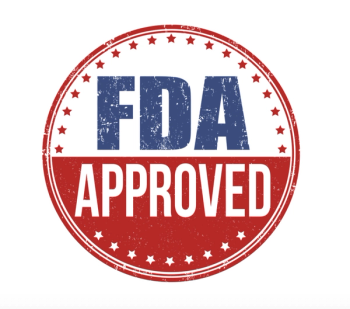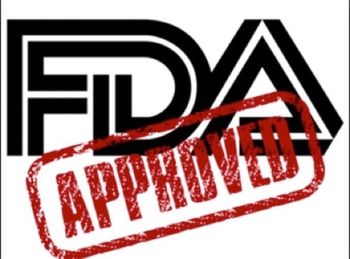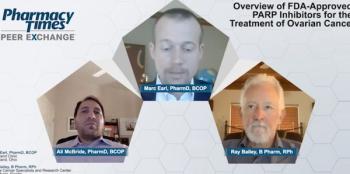
Women diagnosed with breast cancer while breastfeeding may receive treatments that decrease milk production or are contraindicated.

Women diagnosed with breast cancer while breastfeeding may receive treatments that decrease milk production or are contraindicated.

A study presented at the Society of Gynecologic Oncology 2020 Annual Meeting on Women’s Cancer showed menstrual cups may provide a novel, less invasive, and more comfortable approach to the diagnosis of endometrial cancer.

Oncology drugs have especially fallen victim to chronic shortages, consequently affecting the availability of substitute agents.

With new and varying options for maintenance therapy in patients with ovarian cancer, patients may express a preference when discussing potential maintenance treatments and their adverse effects.

Researchers found that replacing 30 minutes of inactivity with exercise significantly reduces the risk of cancer-related death.

The intent of the study was to bring awareness to the medical and nonmedical financial hardships of cancer and how they can impact the use of preventive services, since there is little research available to evaluate this topic, according to the study authors.

Pembrolizumab (Keytruda, Merck) monotherapy approved for adult and pediatric patients with unresectable or metastatic tumor mutational burden-high solid tumors.

The most common adverse reactions observed in the monarchE phase 3 trial include diarrhea, neutropenia, fatigue, infections, nausea, abdominal pain, vomiting, anemia, alopecia, decreased appetite, and leukopenia.

Lurbinectedin (Zepzelca) approved based on overall response rate and duration of response in patients with metastatic small cell lung cancer with disease progression on or after platinum-based chemotherapy.

Although many hubs offer similar services, no two specialty pharmacy hubs and no two hub programs are entirely alike.

Gardasil 9 approved for the prevention of oropharyngeal cancer and other head and neck cancers caused by human papillomavirus types 16, 18, 31, 33, 45, 52, and 58.

Facing MBC Together is intended to recognize the prevalence and impact of isolation on the lives of individuals with metastatic breast cancer.

The updated guidelines include increased recommended physical activity levels and a growing emphasis on holistic rather than nutrient-based dietary habits.

Pharmacists can play a role in the drug reimbursement process for oncology products, which are among the most expensive of all pharmaceuticals.

FDA officials based their approval on the review of data and evidence that demonstrated a close similarity between pegfilgrastim-apgf and its reference product.

Ripretinib is a kinase inhibitor indicated for adults with advanced GIST, approved by the FDA in May 2020.

Apalutamide in combination with ADT prolonged median OS by 14 months and decreased the risk of death by 22%. Further, median OS was significantly longer, with 73.9 months for patients receiving treatment with apalutamide in combination with ADT compared with 59.9 months for patients receiving placebo in combination with ADT.

Interventions such as exercise programs and discharge planning efforts have been promising in addressing functional impairment and improving post-discharge outcomes.

According to a recent study, diet can affect the outcome of chemotherapy due to microbes in the gut that can trigger changes in a patient’s response to drugs.

The investigational, marine-derived small-molecule binds to and affects the function of the protein tubulin within cells of the body.

In the new data cut-offs from both studies, the survival advantages for the combination with fulvestrant and combination with an aromatase inhibitor were shown, but major disadvantages were also evident, according to the IQWiG.

This Peer Exchange Webinar will provide insights into use of PARP inhibitors in the treatment of ovarian cancer.

The recent analysis of VB-111 was a phase 3 potential registration study conducted with 400 patients and 95 sites around the world.

According to a recent study, olanzapine may help patients with advanced cancer manage symptoms unrelated to chemotherapy, such as nausea and vomiting.

“Providing quality of care in a field of cancer risk, genetics, and prevention revolves around 3 essential interdependent components,” said presenter Erin Wysong Hofstatter, MD.

At the 2020 ASCO Annual Meeting, speaker Leslie R. Ellis, MD, MSHPEd, FACP, discussed the results of studies in a session looking into current research on leukemia, MDS, and allotransplant.

Results of the COVID-19 and Cancer Consortium cohort study were presented during the virtual science program of the 2020 American Society of Clinical Oncology (ASCO) Annual Meeting.

A study found that nurse-led follow-up and mobile health app leads to improved relative dose intensity, patient experiences, hospitalizations and their duration, and the rate of treatment-related grade 3 or higher toxicities.

The presence of ongoing SHM or CSR in the context of CLL may support the functionality of DNA damage repair pathways, with potential relevance to therapeutic strategies.

Osimertinib is a third-generation EGFR tyrosine kinase inhibitor and is approved in the United States for first-line treatment of patients with metastatic NSCLC with tumors that have EGFR mutations (exon 19 deletions or exon 21 L858R mutations).